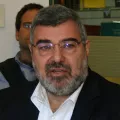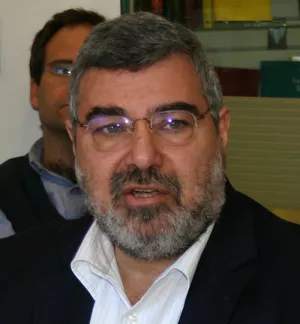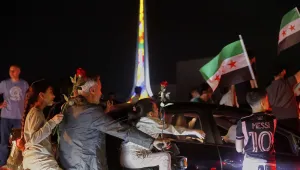A flurry of press reports and analyses about the future of Syria, like the regular Elvis Presley sightings I always enjoy, are dramatic, captivating, slightly wondrous, and fill a basic psychological need. Most of what we hear about the future demographic configuration, borders, or ruling power structure of Syria is titillating speculation. The actual outcomes in Syria will reflect domestic, regional, and international factors that are all unknown today.
Despite this, it is useful to note some of the press reports from Geneva, Istanbul, the United Nations in New York, and other places where men and women interested in Syria meet to explore future possibilities, or hammer out interim and transitional agreements. The “where there is smoke there is fire” principle means some ideas floated today might possibly shape future conditions, and they also reveal much about those doing making proposals or predictions.
The most fascinating but troubling of these is that Syria might find peace and stability by adopting a Lebanese-style governance structure that formally apportions and shares power among the country’s sectarian, ethnic, and national groups. If this truly is under consideration, I suggest that it should be dropped quickly, and the people proposing it should seek emergency treatment for their twin conditions of political delusion and colonial illusion, before they do any more damage.
One recurring report is that UN, US, and Russian officials, among others, are considering a Syrian “presidential council” that would include the current or a future president, assisted by three or five “deputies” representing Syria’s main sects. Other reports say that various big power officials are meeting in Europe to draft constitutional formulas for a future Syria with a sectarian-based power-sharing system that mirrors those in Iraq and Lebanon.
Lebanon has many fine qualities, but political governance absolutely is not on that list. The current Lebanese political system is a catatonic embarrassment that irritates or demeans a majority of Lebanese citizens. It leads to stalemate, power vacuums, child-like ideological feuds, deteriorating economic and other conditions, corruption, nepotism, waste, misuse of resources, abuse of power, structural political immobility, the death of meritocracy, distrust of foreign donors, streets that double as mountain bike obstacle courses, and dangerous situations such as the current lack of proper garbage disposal, deteriorating water quality, and erratic electricity supplies. Hezbollah’s powerful independent status highlights the power-sharing-based political system’s inability actually to agree on how to share power between the state and the country’s strongest non-state force.
Yet, I would live nowhere else but in Lebanon, as I do now. I have lived in Lebanon for extended periods three times in my life, totaling 20 years, and have been in and out of the country regularly all my life. I consider this one of the blessings I have enjoyed in life, because of the many outstanding qualities of Lebanon and its people. I live in Beirut because it is the only place in the Arab World where I feel one can live as a full human being, using 100 percent of one’s human faculties — political, cultural, intellectual, gastronomic, and others. In most Arab countries people are allowed to use between 33 and 67 percent of their human brain power and cultural faculties, the balance being banned by an assortment of security agencies, laws, cultural, tribal, social, and sectarian constraints, or regular desert dust storms that clog the arteries of the mind.
Lebanon generally has the Arab world’s most dynamic and creative sectors of society that require intellectual, scientific, cultural, and creative effort by native human beings (publishing, universities, research, theater, multi-media, film, journalism, dance, art, bookstores, and others) for one simple reason: Individuals are fully free to use all their powers of reason, artistic creativity, analysis, debate, and entertainment. Such freedom of the individual unleashes dynamics that every country would cherish — creativity, flexibility, adaptability, resilience, personal initiative, and human agency that offers people hope for a better future that they can bring about through their own deeds in the public and private spheres. Such human beings — citizens, not just consumers and welfare recipients — are critical for Lebanon’s ability to withstand repeated wars and the combined shame, waste, destitution, and folly of its ailing political system.
Lebanon is also inherently pluralistic and tolerant, as at the community and urban levels people of different sectarian and cultural groups live in peace and routinely intermarry, and share businesses, schools, and cultural facilities. The system totally breaks down at the level of feuding national political leaderships, so now the country has no president or active parliament, and the cabinet is mostly moribund.
The lesson is that if any other country wants to copy anything from Lebanon, it should be the legacy of personal freedom and community-based tolerant pluralism, not the derelict governance system that apportions power and jobs according to sectarian and ethnic identity. If anyone suggests copying Lebanon’s power-sharing system, just give them a tranquilizer, let them nap, and politely ignore them.
Khouri, Rami. “The delusion of copying Lebanon's political system.” Agence Global, April 20, 2016



